Ernst Krebs may refer to:
- Ernst Krebs (canoeist)
- Ernst Krebs (wrestler)
- Ernst T. Krebs, American conman and biochemist
Ernst Krebs may refer to:
Pyruvic acid (CH3COCOOH) is the simplest of the alpha-keto acids, with a carboxylic acid and a ketone functional group. Pyruvate, the conjugate base, CH3COCOO−, is an intermediate in several metabolic pathways throughout the cell.

Sir Hans Adolf Krebs, FRS was a German-born British biologist, physician and biochemist. He was a pioneer scientist in the study of cellular respiration, a biochemical process in living cells that extracts energy from food and oxygen and makes it available to drive the processes of life. He is best known for his discoveries of two important sequences of chemical reactions that take place in the cells of humans and many other organisms, namely the citric acid cycle and the urea cycle. The former, often eponymously known as the "Krebs cycle", is the key sequence of metabolic reactions that provides energy in the cells of humans and other oxygen-respiring organisms; and its discovery earned Krebs a Nobel Prize in Physiology or Medicine in 1953. With Hans Kornberg, he also discovered the glyoxylate cycle, which is a slight variation of the citric acid cycle found in plants, bacteria, protists, and fungi.
Krebs is the German and Danish word for "crab" and "cancer". It may refer to:
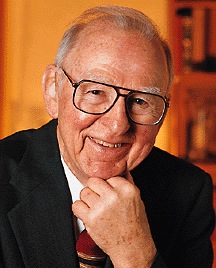
Edwin Gerhard Krebs was an American biochemist. He received the Albert Lasker Award for Basic Medical Research and the Louisa Gross Horwitz Prize of Columbia University in 1989 together with Alfred Gilman and, together with his collaborator Edmond H. Fischer, was awarded the Nobel Prize in Physiology or Medicine in 1992 for describing how reversible phosphorylation works as a switch to activate proteins and regulate various cellular processes.
Ernst Theodore Krebs, Jr., known as Ernst T. Krebs, was a notorious American conman who promoted various substances as alternative cures for cancer, including pangamic acid and amygdalin. He also co-patented the semi-synthetic chemical compound closely related to amygdalin named laetrile, which was also promoted as a cancer preventative and cure. His medical claims about these compounds are not supported by scientific evidence and are widely considered quackery.
Brian Krebs is an American journalist and investigative reporter. He is best known for his coverage of profit-seeking cybercriminals. Krebs is the author of a daily blog, KrebsOnSecurity.com, covering computer security and cybercrime. From 1995 to 2009, Krebs was a reporter for The Washington Post and covered tech policy, privacy and computer security as well as authoring the Security Fix blog. He is also known for interviewing hacker 0x80.
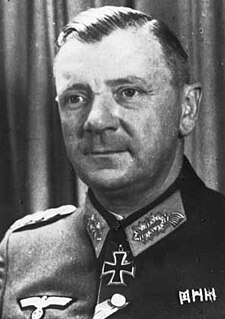
Wilhelm Emanuel Burgdorf was a German general during World War II, who served as a commander and staff officer in the German Army. In October 1944, Burgdorf assumed the role of the chief of the Army Personnel Office and chief adjutant to Adolf Hitler. In this capacity, he played a role in the forced suicide of Field Marshal Erwin Rommel. Burgdorf committed suicide in the Führerbunker on 2 May 1945 at the conclusion of the Battle of Berlin.
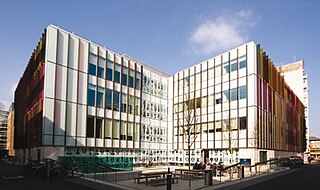
The Department of Biochemistry of Oxford University is located in the Science Area in Oxford, England. It is one of the largest biochemistry departments in Europe. The Biochemistry Department is part of the University of Oxford's Medical Sciences Division, the largest of the university's four academic divisions, which has been ranked first in the world for biomedicine.
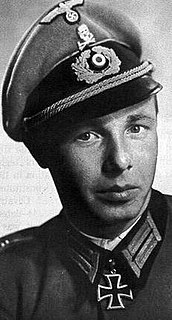
Gerhard Boldt was an officer in the German Army (Heer) who wrote about his experiences during World War II.
Theoderich Heinrich August Wilhelm von Dufving (1907–2001), known as Theodor von Dufving, was a German officer of the Wehrmacht during the Second World War.
Friedrich Krebs may refer to:

This comparison of orbital launch systems lists the attributes of all individual rocket configurations designed to reach orbit. A first list contains rockets that are currently operational or in development; a second list includes all retired rockets. For the simple list of all conventional launcher families, see: Comparison of orbital launchers families. For the list of predominantly solid-fueled orbital launch systems, see: Comparison of solid-fueled orbital launch systems.
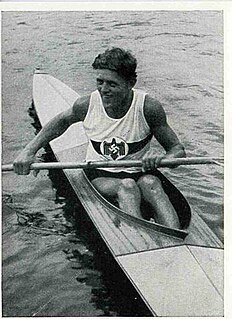
Ernst Krebs was a German sprint canoeist, born in Munich. At the 1936 Summer Olympics, he won the gold medal in the K-1 10000 m event. This event took place on Friday 7 August 1936, at 5:10 pm. In total including himself, there were 15 participants representing 15 countries for the one-seater kayak race. Krebs won gold with a time of 46:01.6. The silver medal went to Fritz Landertinger, of Austria, with a time of 46.14.7 and the bronze medal went to Ernst Riedel, of the U.S.A., with a time of 47.23.9. The electric timing apparatus of the firm of Lòbner was used for time-keeping and there were four timekeepers at the finish line.
Hans Krebs is the name of:

Hans Krebs was a German Army general of infantry who served during World War II. A career soldier, he served in the Reichswehr and the Wehrmacht. He served as the last Chief of Staff of the Oberkommando des Heeres (OKH) during the final phase of the war. Krebs tried to open surrender negotiations with the Red Army; he committed suicide in the Führerbunker during the early hours of 2 May 1945, two days after Adolf Hitler died.
Yaogan is a broad term that refers to the various families of Chinese military reconnaissance satellites.
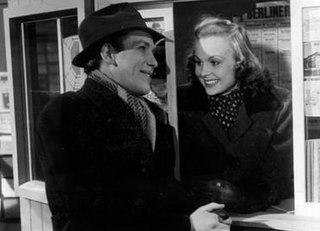
No Place for Love is a 1947 German comedy film directed by Hans Deppe and starring Bruni Löbel, Heinz Lausch and Ernst Legal. It was made in the Soviet Sector of Berlin by the state-controlled DEFA company. It is part of the post-war tradition of rubble films. Its plot revolves around the shortage of housing in the bombed-out city.

Gustav "Gustl" Müller was a German Nordic combined and cross-country skier.
The following lists events that happened during 2000 in Germany.

The Miami Line is an urban-scale multicolored neon-light installation, designed by Rockne Krebs, in the U.S. city of Miami, Florida, stretching 1,540 feet (470 m) along the Metrorail bridge over the Miami River. When Krebs created the first phase of The Miami Line in 1984, it was 300 feet (91 m) long. Because of to its great popularity, the piece was greatly expanded in 1988 to a total of 1,540 feet (470 m).